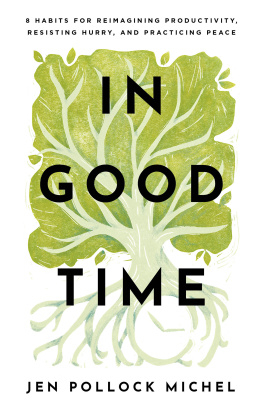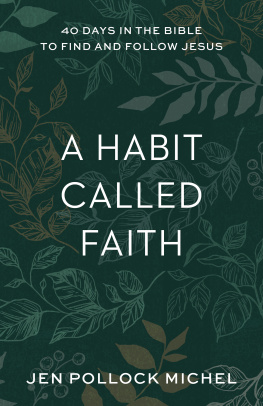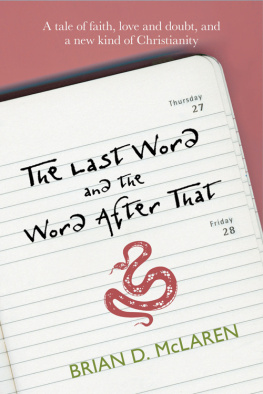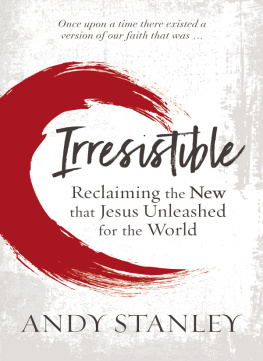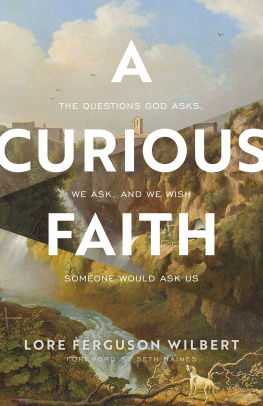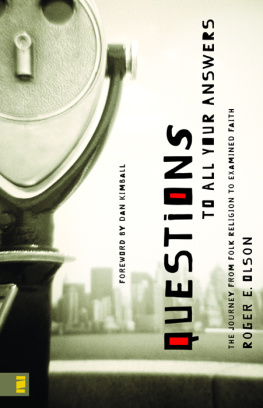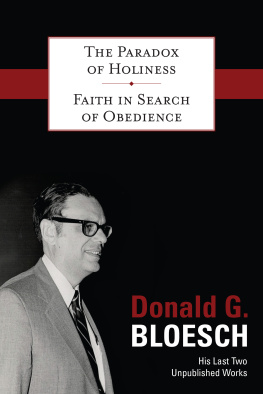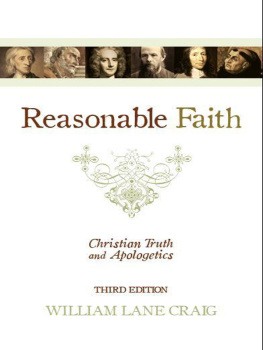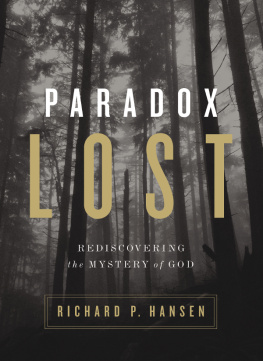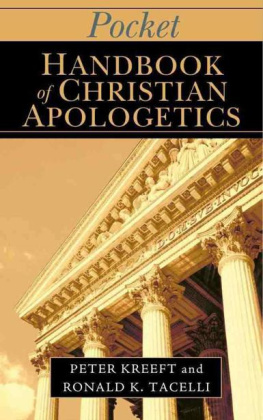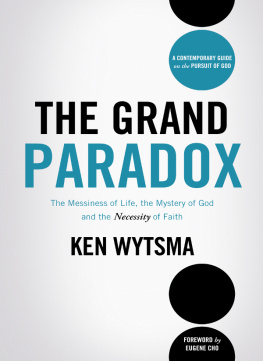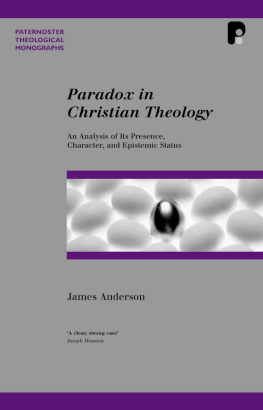Sommaire
Pagination de l'dition papier
Guide
SURPRISED
by
PARA
DOX
THE PROMISE
of And in an
EITHER-OR WORLD
JEN POLLOCK MICHEL
Foreword by Russ Ramsey
InterVarsity Press
P.O. Box 1400, Downers Grove, IL 60515-1426
ivpress.com
2019 by Jen Pollock Michel
All rights reserved. No part of this book may be reproduced in any form without written permission from InterVarsity Press.
InterVarsity Press is the book-publishing division of InterVarsity Christian Fellowship/USA, a movement of students and faculty active on campus at hundreds of universities, colleges, and schools of nursing in the United States of America, and a member movement of the International Fellowship of Evangelical Students. For information about local and regional activities, visit intervarsity.org.
Scripture quotations, unless otherwise noted, are from The Holy Bible, English Standard Version, copyright 2001 by Crossway Bibles, a division of Good News Publishers. Used by permission. All rights reserved.
While any stories in this book are true, some names and identifying information may have been changed to protect the privacy of individuals.
Cover design: David Fassett
Interior design: Daniel van Loon
Images: trees in forest: Alexander Schitschka / EyeEm / Getty Images
white textured wall: Nadine Westveer / EyeEm / Getty Images
forest of trees: Laura Frediani / EyeEm / Getty Images
flock of flying birds: Amir Mukhtar / Moment collection / Getty Images
ISBN 978-0-8308-7092-9 (digital)
ISBN 978-0-8308-4564-4 (print)
This digital document has been produced by Nord Compo.
TO JONAS MCANN AND THE PASTORS LIKE HIM.
Thank you for preaching the truth and
trying not to miss the wonder.
We have heard the fact. Let us seek the mystery.
AUGUSTINE
FOREWORD
Russ Ramsey
The kingdom of God is as if a man should scatter seed on the ground. He sleeps and rises night and day, and the seed sprouts and grows; he knows not how.
MARK 4:26-27
W hen I was in my early twenties, I discovered the joy of studying theology. I found myself aligning with a large number of other people like me who were discovering a theological framework for understanding God and the world that seemed watertight.
As a young man interested in ministry and theology, I marveled at the way the doctrines I was learning made God, the world, and my place in it fit together like a puzzle. Putting the puzzle together took work, but the promise was that if I kept at it, I would come to see the things of God with a kind of crystal clarity that would make my faith, and my calling, unassailable.
That was half my life ago. I still love studying theology, and I have not abandoned the doctrines that took hold of my heart and mind when I was younger. But many of the ideas about God I assumed would have become crystal clear to me at this point in my life seem to have withdrawn more into the shadows of mysteryremaining ever-present while managing to evade capture. The older I get, the more I discover that certainty can be elusive.
I want to be clear here. I believe in certainty, but I do not believe in comprehensive certainty. Anyone who says they do is either a liar or a fool. We dont know what we dont know. The apostle Paul wrote, Now we see in a mirror dimly, but then face to face. Now I know in part; then I shall know fully, even as I have been fully known (1 Cor 13:12).
We know in part.
In terms of the essentials of saving faith, Gods word is clear. He gave us Scripture so that you may believe that Jesus is the Christ, the Son of God, and that by believing you may have life in his name (Jn 20:31). Gods word is able to make you wise for salvation through faith in Christ Jesus (2 Tim 3:15).
And yet, here lies a paradox. Even of the things were certain about, we only know in part. For example, I know that Christ Jesus is the one who diedmore than that, who was raisedwho is at the right hand of God, who indeed is interceding for us (Rom 8:34). But please dont ask me to describe that room or recite Christs prayer. Even my best guess would fall way short.
Seeing through the glass dimly is not a flaw in the system. Rather, it is in keeping with what we know about God. God is glorious. Moses only saw the back part of a passing God, and that while hidden in the cleft of a rock, because if he saw any more, he would have died (see Ex 33:20-23). Mystery abounds when dealing with God because he is God and we are not. Allowing for paradox does not represent a weakened approach to theological understanding. On the contrary, it allows for a robust theology, one that is filled with the sort of awe that not only regards God as unimaginably wondrous but also awakens in us the same desire Moses had to see him as he is.
Theological understanding should not become a substitute for faith. Studied rightly, theology should lead to awe and wonder. To that end, my friend Jen Pollock Michel has given us a gift. It seems to me that the church has a renewed appetite for wonder, mystery, paradox, and awe, so Surprised by Paradox comes at an important time.
As a pastor, I have seen the danger that comes with believing God can be solved like an equation. When we treat him like a system of theological points rather than the glorious Creator of heaven and earth, we end up bending what we think about him to fit the structure we think contains him. The problem with this is that my twenty-year-old understanding of God doesnt fit into the box the God I know now in my forties requires. And I have to believe that if I reach my seventies, my view of him will be different in many ways from what it is today.
I am not talking about abandoning orthodoxy or venturing away from the faith. God forbid. I am talking about venturing deeper in. Today, my understanding of God is informed by suffering, vocational challenges, parental struggles, and a deeper understanding of my own sin that were not in play in my twenties. My questions about God increase in number not because I know less, but because I know more. And as my questions increase, so does my faith, which Scripture esteems as a higher prize than certainty (see 1 Cor 13:13).
Jen describes Surprised by Paradox as a book about faith in its lived-in conditionas it abides complexity rather than resists it. Surely abiding complexity rather than resisting it is a spiritual discipline. This book is a Biblically grounded, theologically sound guide for honing that skill. I am so glad she wrote it and that you are reading it.
Our culture races to the logical fallacy that says if something doesnt make sense to me, it must not make sense at all. What a tragically small view of the world folded into an even more tragically large view of ourselves. We were made to wonder, to form questions in our hearts that no other human being can answerquestions that belong to a world that transcends what we can comprehend. These questions do not drive us away from God; they draw us near.
Jesus said the seed sprouts and grows, and we know not how. In these pages, Jen Pollock Michel reminds us that though we know not how, the seeds still do sprout and grow. This is Gods work. To wonder about such things is to worship. To God be the glory.


